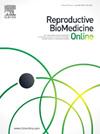人工智能在ART实验室的使用和理解:一项国际调查。
IF 3.7
2区 医学
Q1 OBSTETRICS & GYNECOLOGY
引用次数: 0
摘要
研究问题:辅助生殖技术(ART)实验室专业人员对人工智能(AI)的认知、采用和理解情况如何?设计:在2023年7月17日至8月31日期间,在全球临床胚胎学家中使用在线问卷进行了一项包含32个问题的横断面调查。该调查评估了人们对人工智能技术的熟悉程度;实验室现有知识;理解人工智能的原理和局限性;以及对伦理问题、工作影响和科学家与患者关系的看法。结果:共有702名调查对象。结果显示,人们对人工智能概念的认知程度很高。与会者认识到人工智能在胚胎学中的潜在好处,但也承认已知的局限性。虽然对人工智能的采用持开放态度,但他们对伦理、对就业的影响以及保持积极的患者关系持保留态度。这项研究揭示了胚胎学家基于多年经验的不同观点。大多数胚胎学家(与年龄无关)对人工智能持积极态度,但工作场所的担忧随着年龄的增长而减少。结论:ART专业人员广泛接受人工智能,但提出了伦理和实践的不确定性。开发人员和最终用户之间的进一步合作可以使人工智能创新与人类从业者的价值观和需求保持一致。本文章由计算机程序翻译,如有差异,请以英文原文为准。
Use and understanding of AI in the ART laboratory: an international survey
Research question
What is the awareness, adoption and comprehension of artificial intelligence (AI) among assisted reproductive technology (ART) laboratory professionals?
Design
A cross-sectional survey consisting of 32 questions was conducted among clinical embryologists worldwide using an online questionnaire between 17 July and 31 August 2023. The survey assessed familiarity with AI technology; current knowledge within laboratories; understanding of AI principles and limitations; and views on ethical concerns, job impacts and scientist–patient relationships.
Results
In total, there were 702 survey respondents. The results revealed a high degree of awareness of AI concepts. The participants recognized the potential benefits of AI in embryology, but acknowledged known limitations. While open to the adoption of AI, they expressed reservations surrounding ethics, effects on jobs, and maintaining positive patient relationships. The study uncovered differences in embryologists' opinions based on their years of experience. Most embryologists, independent of age, were positive regarding AI, but workplace concerns diminished with age.
Conclusions
ART professionals are broadly receptive to AI, but ethical and practical uncertainties were raised. Further engagement between developers and end-users can align AI innovation with the values and needs of human practitioners.
求助全文
通过发布文献求助,成功后即可免费获取论文全文。
去求助
来源期刊

Reproductive biomedicine online
医学-妇产科学
CiteScore
7.20
自引率
7.50%
发文量
391
审稿时长
50 days
期刊介绍:
Reproductive BioMedicine Online covers the formation, growth and differentiation of the human embryo. It is intended to bring to public attention new research on biological and clinical research on human reproduction and the human embryo including relevant studies on animals. It is published by a group of scientists and clinicians working in these fields of study. Its audience comprises researchers, clinicians, practitioners, academics and patients.
Context:
The period of human embryonic growth covered is between the formation of the primordial germ cells in the fetus until mid-pregnancy. High quality research on lower animals is included if it helps to clarify the human situation. Studies progressing to birth and later are published if they have a direct bearing on events in the earlier stages of pregnancy.
 求助内容:
求助内容: 应助结果提醒方式:
应助结果提醒方式:


